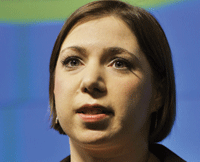
A single assessment process for children with disabilities and special educational needs will replace the current statementing system, a government green paper revealed today.
The single assessments are expected to be piloted in 25 local authorities from September this year and will see children given a single care plan including health, social care and education support.
However, currently there is a lack of clarity over who will be responsible for co-ordinating the care plan although the government is considering how voluntary groups might co-ordinate the package of support to ensure greater independence from local councils.
At the green paper launch this morning, children’s minister Sarah Teather said: “We’re going to have to work through the detail of exactly what we’re going to pilot. I think there will be a variety of different models and it may not necessarily be that the voluntary sector actually does the assessments.
“There are all sorts of options that we would like to try out to see what works and what gives parents confidence that they’re getting a fair deal from the system.”
The minister added that the government wanted to encourage local authorities to form consortia, working together to overcome the risks and expense involved in children with SEN and disabilities.
“We really want to encourage local authorities to work together on a bigger scale,” she said. “If you have a very expensive family moving between services and agencies, that is a big risk for local authorities.Those authorities that have already come together have found that there are ways in which they can mitigate that risk and make things much better for families.”
Teather did not give more detail about the process by which local authorities would function in this way.
Parents will be included in the assessment process and will have a legal right, from 2014, to have control of the funding for the plan under a personal budget.
Teather said: “Parents and voluntary organisations have given us overwhelming examples where they have felt let down by local services.
“At the moment there is an appalling situation where public money is being wasted as children are growing out of equipment, like wheelchairs, before they even arrive. The new single assessment process and plan will tackle this issue and mean that parents don’t feel they have to push to get the services they are entitled to.”
Other proposals include:
● Ensure assessment and plans run from birth to 25 years old.
● Replace the existing complicated School Action and School Action Plus system with a simpler new school based category to help teachers focus on raising attainment.
● Overhaul teacher training and professional development to better help pupils with special educational needs and to raise their attainment
● Give parents a greater choice of school and give parents and community groups the power to set up special free schools.
Srabani Sen, chief executive of Contact a Family, said the consultation proves a “very useful starting point for discussion” but added that there are “questions that need to be answered on how these proposals would work in practice”.
“The introduction of a simplified assessment process has the potential to make lives less stressful for families. However the Green Paper is not clear about where responsibility lies to ensure that a joined up package of support is delivered for disabled children and their families, and that those carrying out assessments have the right skills and knowledge.
“Professionals involved in a child’s care must be made accountable if they do not deliver and there is no clear indication of how this would work in the Green Paper. Our own research What Makes My Family Stronger found that 60% of families have a poor or unsatisfactory experience of being listened to by the professionals involved in their child’s care.
What do you think? Join the debate on CareSpace
Keep up to date with the latest developments in social care. Sign up to our daily and weekly emails
Related articles
Disabilities/SEN Green Paper delayed… again
Funding for short breaks expected to be delivered through Early Intervention grant


 Bournemouth, Christchurch and Poole
Bournemouth, Christchurch and Poole  Hampshire County Council
Hampshire County Council  Lincolnshire County Council
Lincolnshire County Council  Norfolk County Council
Norfolk County Council  Northamptonshire Children’s Trust
Northamptonshire Children’s Trust  South Gloucestershire Council
South Gloucestershire Council  Wiltshire Council
Wiltshire Council  Wokingham Borough Council
Wokingham Borough Council  Children and young people with SEND are ‘valued and prioritised’ in Wiltshire, find inspectors
Children and young people with SEND are ‘valued and prioritised’ in Wiltshire, find inspectors  How specialist refugee teams benefit young people and social workers
How specialist refugee teams benefit young people and social workers  Podcast: returning to social work after becoming a first-time parent
Podcast: returning to social work after becoming a first-time parent  Podcast: would you work for an inadequate-rated service?
Podcast: would you work for an inadequate-rated service?  Family help: one local authority’s experience of the model
Family help: one local authority’s experience of the model  Workforce Insights – showcasing a selection of the sector’s top recruiters
Workforce Insights – showcasing a selection of the sector’s top recruiters 

 Facebook
Facebook X
X LinkedIn
LinkedIn Instagram
Instagram
Comments are closed.